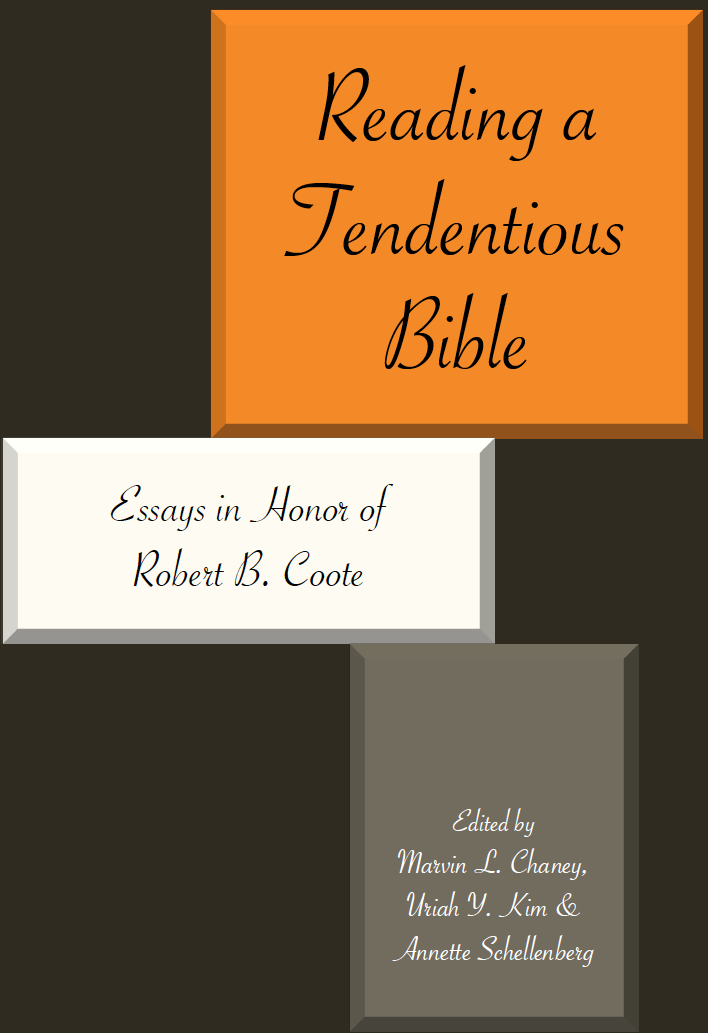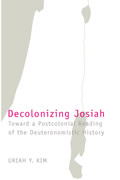Sale
Identity and Loyalty in the David Story: A Postcolonial Reading
Published: Oct 2008
Original price was: £40.00.£16.50Current price is: £16.50.
In this volume, Uriah Kim examines King David in a new light — the politics of identity and loyalty. He reads the David story from the North American context, in which millions of Americans are compelled to make a choice between their multiple heritages, which are inseparably encoded in their genetic or cultural makeup. In making this choice, their loyalty to their nation and to their particular racial/ethnic community is questioned if they do not define themselves with a single identity.
Kim sees a David who was radically inclusive: an egalitarian who was open to making connections with people across various boundaries and differences and who was thus able to build a multi-ethnic kingdom. Rather than basing his rule on his own tribal identity, David built his kingdom by attracting the loyalty of diverse constituents and by putting together an eclectic coalition of ethnic, tribal, and religious groups based on loyalty. It was only later, as part of the identity formation of ancient Israel, that people who were equally part of David's hybridized kingdom were separated into 'real' Israelites as opposed to 'the other' in the narrative.
In this reading, Kim leads the reader to a new understanding of David: he did not just use Realpolitik and the sword, nor did he depend totally on God's providence to establish his kingdom; rather, he practised the transgressive power of hesed ('loyalty and kindness') to forge his kingdom.
Sale
Identity and Loyalty in the David Story: A Postcolonial Reading
Original price was: £40.00.£16.50Current price is: £16.50.
In this volume, Uriah Kim examines King David in a new light — the politics of identity and loyalty. He reads the David story from the North American context, in which millions of Americans are compelled to make a choice between their multiple heritages, which are inseparably encoded in their genetic or cultural makeup. In making this choice, their loyalty to their nation and to their particular racial/ethnic community is questioned if they do not define themselves with a single identity.
Kim sees a David who was radically inclusive: an egalitarian who was open to making connections with people across various boundaries and differences and who was thus able to build a multi-ethnic kingdom. Rather than basing his rule on his own tribal identity, David built his kingdom by attracting the loyalty of diverse constituents and by putting together an eclectic coalition of ethnic, tribal, and religious groups based on loyalty. It was only later, as part of the identity formation of ancient Israel, that people who were equally part of David's hybridized kingdom were separated into 'real' Israelites as opposed to 'the other' in the narrative.
In this reading, Kim leads the reader to a new understanding of David: he did not just use Realpolitik and the sword, nor did he depend totally on God's providence to establish his kingdom; rather, he practised the transgressive power of hesed ('loyalty and kindness') to forge his kingdom.
Sale
Decolonizing Josiah: Toward a Postcolonial Reading of the Deuteronomistic History
Published: Jun 2006
£14.95 – £19.50
In the prevailing view, the Deuteronomistic History is the first and archetypical Western history, describing the creation of an Israelite state in Palestine as the origin of civilization in the region, a hegemonic culture rendering the other inhabitants of the country homeless in their own land. That view of Davidic domination over greater Palestine, fashioned under Josiah, has been given a modern nationalist reading by contemporary scholars, a reading consistent with the vast array of covert cultural confirmations of Euro-American imperial power.
How is it possible, Kim asks, given the all-encompassing sway of the colonialist reading of the Bible, to understand Josiah in other than colonialist terms? His answer: the historical imagination, making unfettered use of the tools of the critical historian, must be informed by the experience of those who have lived as the other, as the colonized, as not at home in their own land —which means, for Kim, the experience of being Asian American. The intellectual use of this experience creates his distinctive postcolonial perspective, as he draws attention to the connection between Western imperialism and the production of Western knowledge. Specifically, the author reads the story of Josiah intercontextually with the experience of Asian Americans from the space of liminality.
This is a passionate postcolonial reading of Josiah that, on one hand, critiques the failure of biblical studies to come to terms with its colonialist legacy and, on the other hand, connects the world of biblical studies to the world at large.
Sale
Decolonizing Josiah: Toward a Postcolonial Reading of the Deuteronomistic History
£14.95 – £19.50
In the prevailing view, the Deuteronomistic History is the first and archetypical Western history, describing the creation of an Israelite state in Palestine as the origin of civilization in the region, a hegemonic culture rendering the other inhabitants of the country homeless in their own land. That view of Davidic domination over greater Palestine, fashioned under Josiah, has been given a modern nationalist reading by contemporary scholars, a reading consistent with the vast array of covert cultural confirmations of Euro-American imperial power.
How is it possible, Kim asks, given the all-encompassing sway of the colonialist reading of the Bible, to understand Josiah in other than colonialist terms? His answer: the historical imagination, making unfettered use of the tools of the critical historian, must be informed by the experience of those who have lived as the other, as the colonized, as not at home in their own land —which means, for Kim, the experience of being Asian American. The intellectual use of this experience creates his distinctive postcolonial perspective, as he draws attention to the connection between Western imperialism and the production of Western knowledge. Specifically, the author reads the story of Josiah intercontextually with the experience of Asian Americans from the space of liminality.
This is a passionate postcolonial reading of Josiah that, on one hand, critiques the failure of biblical studies to come to terms with its colonialist legacy and, on the other hand, connects the world of biblical studies to the world at large.




